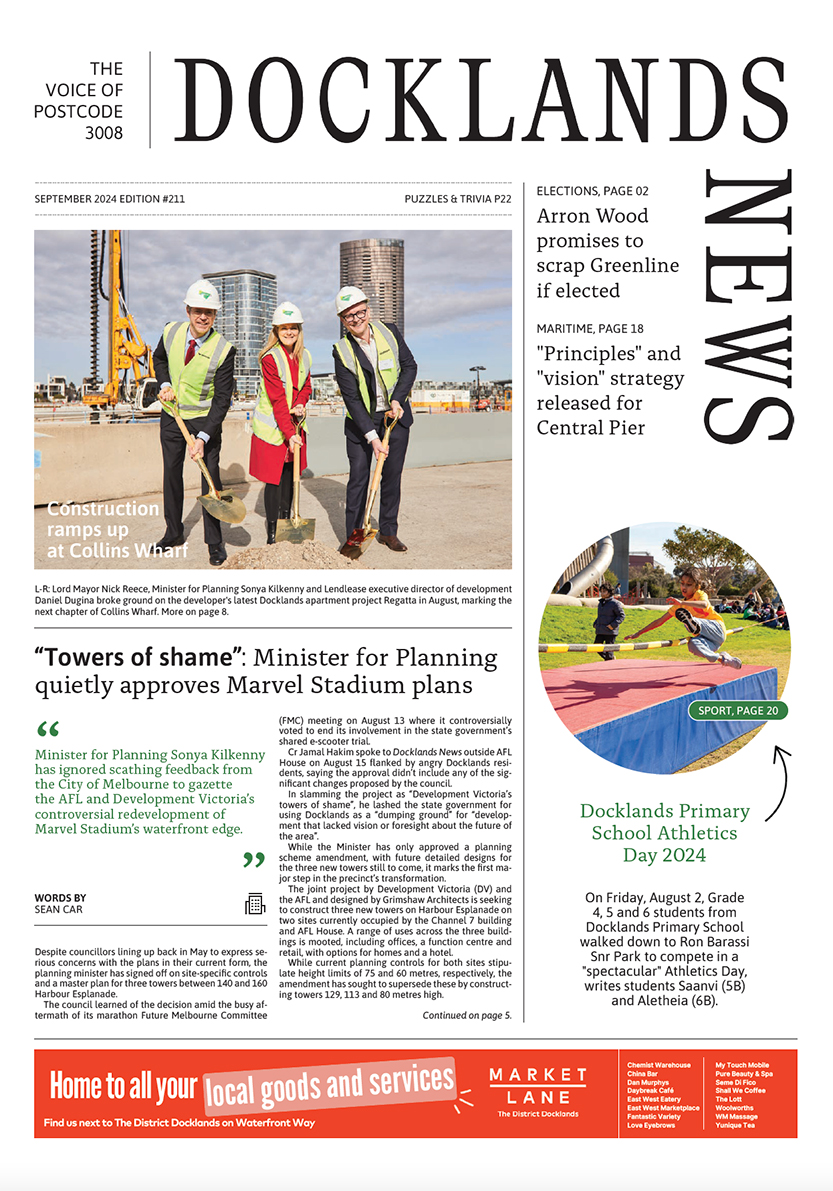When buying an apartment “off the plan”, always check who the builder is too
With news hitting the public domain almost every other week about a prominent building company going into administration, many in the construction industry are now bracing for a ripple effect of smaller contractors and sub-contractors also pulling the plug.
The COVID-19 pandemic did not just create construction delays for the industry, but it also led to shortages of required building materials, as well as trucking and shipping logistic delays and price increases, too. All of this has created a perfect storm.
With construction contracts, it is usual for developers to engage builders for a fixed price following a tender process. There are penalties in the contract if the builder does not complete the construction project on time as well.
Prior to the pandemic starting, the precedents for these construction contracts did not contemplate a worldwide pandemic affecting a construction project, so the “force majeure” or “act of god” exclusion clauses did not include a provision to cover this situation.
This means that building companies may well be facing the prospect of not only being forced to complete a building contract in circumstances where the price of materials might have increased by 20 to 30 per cent, but also where the developer is enforcing delay damages for failing to complete it on time. No wonder building companies are feeling the pressure.
In the meantime, there is no denying that Melburnians are fascinated by high-rise strata living, as evidenced by the large number of multi-storey high-rise developments that continue to be marketed and sold “off the plan” ahead of being built in and around the city.
However, before signing the contract, some of the most important things for prospective purchasers to consider are:
The profile and track record of the builder and developer
For instance, do they have a history of doing good work in Australia and around the world? Do they stand behind their developments? Do they return to their developments to fix any defects? Are they financially secure?
These matters can be checked via online enquiries. If the developer or builder runs into trouble during the intervening period between the sales contract being entered into and settlement, then there is the risk of the deposit being lost, or the project being cancelled or at least substantially delayed.
Has the developer provided sufficient information about what is being purchased?
For instance, are the architectural plans of the building and common areas no more than generic images? Have the internal furnishings been specified?
Have the running costs of the building been properly specified?
Some owners’ corporations (OC) have had nasty surprises after settlement when it has been discovered that the budget and levies had been overwhelmingly under-estimated.
Will the building be completed in stages and which stage will the unit be completed within?
There can be instances of disruption and loss of amenity for owners that settle early, as they move in while the upper levels of the towers are still being built, with workmen and construction noise continuing for several months after settlement.
Will the building be independently managed?
It’s important to note whether this will occur under a reputable OC management company and caretaker, or does the sales contract provide the developer with the discretion to appoint whomever they like and “lock the OC” into a long-term contract?
Do the proposed rules suit your needs?
With regards to such matters as pets, smoking, and the ability to carry out your own renovations. It’s also very important to establish whether the building be occupied by a serviced apartment operator or hotel.
Do you know whether the apartment will have an obstructed or unobstructed view when completed?
There are always risks implicit with any investment, but with a large choice of apartments currently on the market, potential purchasers can afford to shop around and be “picky” about whom they choose to invest their money with.
Reputable developers with a good track record will do well out of the Melbourne market, while those developers who do not have a good reputation or are new to the market may struggle to get their developments sold quickly, unless they market the building overseas and sell to overseas owners. •

Cr Jamal Hakim pushing to make history in Melbourne







 Download the Latest Edition
Download the Latest Edition